- About us
- Support the Gallery
- Venue hire
- Publications
- Research library
- Organisation chart
- Employment
- Contact us
- Make a booking
- Onsite programs
- Online programs
- School visit information
- Learning resources
- Little Darlings
- Professional learning
Fiona Stanley AC (b. 1946), paediatric epidemiologist, is a passionate advocate for children and young people. From the late 1980s Stanley contributed to worldwide research showing that a maternal diet rich in folic acid reduces the likelihood of a baby being born with a neural tube (spinal cord) defect. In Western Australia, three years after commencement of the world's first population program to reduce the incidence of spina bifida through intake of folic acid, the rate of its incidence was nearly halved. Stanley also discovered that cerebral palsy is not due so much to birth trauma as to events earlier in pregnancy, such as infections or placental problems which disrupt normal brain development. Her initiative Ngunytju Tjitji Pirni, an enhanced care service for Aboriginal women and children in the Eastern Goldfields of WA, was the first of its kind in Australia. The Fiona Stanley Hospital, named in her honour, opened in Perth in 2014.
Artist Mary Moore and Stanley have been friends for years. At Stanley's request, this painting refers to her work with Aboriginal people, and includes a Reconciliation badge pinned to her red jacket. At the portrait launch, Stanley said that 'it's not just an image but a representation of what I stand for'.
Commissioned 2011
© Mary Moore



On one level The Companion talks about the most famous and frontline Australians, but on another it tells us about ourselves.
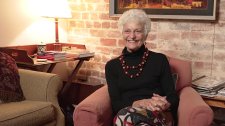
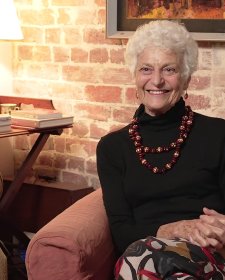

Fiona Stanley on her career as a paediatric epidemiologist, and working with Aboriginal communities.
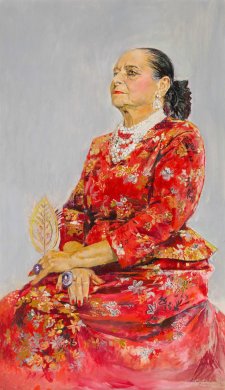
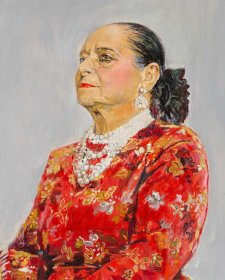
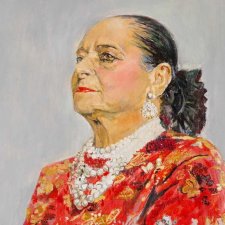
Well behaved women seldom make history, as the saying goes, and the National Portrait Gallery, consequently, is full of awesome Australian women who refused to conform to narrow ideas about their place and their worth.